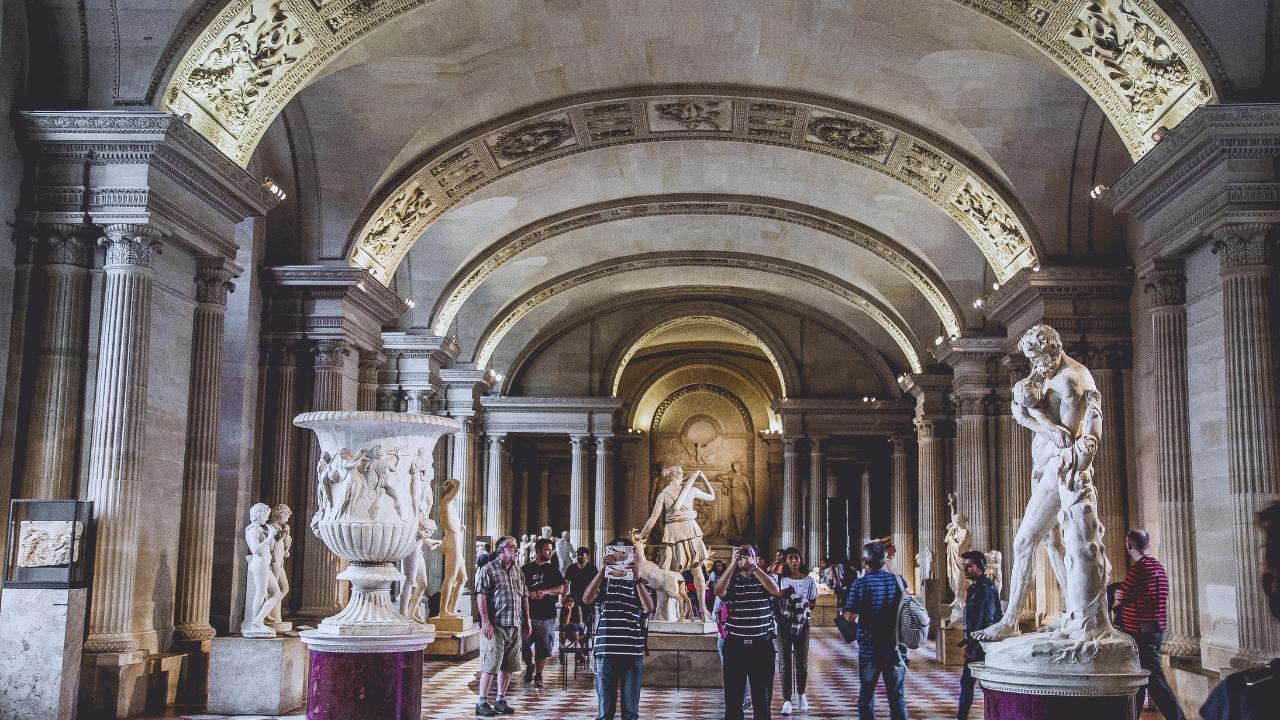You have not yet added any article to your bookmarks!

Join 10k+ people to get notified about new posts, news and tips.
Do not worry we don't spam!

Post by : Anis Farhan
Once considered quiet spaces for historical artifacts, museums are now emerging as dynamic cultural hubs redefining how communities perceive history, art, and identity. In 2025, museums are no longer just passive showcases of the past; they are interactive spaces that shape conversations about the present and future. With innovative exhibitions, digital engagement, and inclusive programming, modern museums play a pivotal role in reflecting diverse cultural identities, preserving heritage, and building cross-cultural understanding. Across continents, this shift is evident in how museums engage their audiences—celebrating both local uniqueness and global connections.
Modern museums have evolved from static display halls into interactive spaces where visitors can engage directly with the exhibits. Interactive screens, sensory installations, and augmented reality (AR) experiences are making history more relatable to younger generations. Museums like the Louvre in Paris and The Smithsonian in Washington D.C. have adopted digital storytelling, allowing visitors to explore artifacts through immersive narratives. This transition helps transform history from distant memory into a tangible, engaging journey that resonates with modern audiences.
Technology plays a crucial role in redefining the museum experience globally. With the rise of virtual reality (VR), artificial intelligence (AI), and interactive apps, museums can transcend geographical limitations, making global cultural artifacts accessible from any corner of the world. Initiatives like Google Arts & Culture allow people to experience global masterpieces without leaving their homes. In Asia, the National Museum of Korea has integrated AI guides, while Dubai’s Museum of the Future uses cutting-edge digital installations to represent futuristic culture. Technology is ensuring that cultural identity remains fluid, accessible, and ever-evolving.
One of the most important cultural shifts in modern museums is the movement toward decolonization. Around the world, institutions are reevaluating how artifacts were acquired and displayed, often returning items to their countries of origin. The British Museum and several European institutions have faced increasing pressure to repatriate looted cultural objects. Meanwhile, new museums in Africa and Asia are reclaiming narratives by highlighting indigenous perspectives and local histories. This global effort to decolonize museums is reshaping cultural identity by fostering honesty, transparency, and justice in how history is told.
Modern museums are increasingly involving communities in curating exhibitions. By encouraging local voices, traditions, and experiences to be part of their narratives, museums are becoming more inclusive. The Museum of African American History and Culture in Washington, D.C., and the Partition Museum in Amritsar, India, use community storytelling to portray complex historical events through personal accounts. This trend promotes cultural identity as something living and diverse, acknowledging stories that were once overlooked or suppressed.
While globalization connects cultures, it also raises concerns about cultural homogenization. Museums play a key role in balancing global influences with the preservation of local identity. Institutions like the National Museum of Qatar and Indonesia’s Museum Nasional are blending modern design with traditional storytelling to protect and promote local culture in the face of globalization. By doing so, museums become defenders of cultural uniqueness while still celebrating international collaboration.
Another major shift is how museums engage younger generations. With innovative learning programs, youth workshops, and technology-driven experiences, museums are nurturing cultural curiosity in young minds. Mobile apps, gamification, and youth-led exhibitions are fostering early connections with cultural heritage. For instance, Japan’s Miraikan (National Museum of Emerging Science and Innovation) uses robotics and interactive learning to inspire children. This proactive engagement ensures cultural identity remains relevant, adapting to future generations.
Modern cultural institutions are also reflecting global priorities like environmental sustainability. New museum buildings increasingly incorporate green architecture, energy-efficient designs, and eco-friendly practices. Museums like the California Academy of Sciences and Singapore’s National Gallery are setting examples by combining cultural preservation with environmental responsibility, signaling a more holistic approach to modern identity.
Museums are also evolving into instruments of cultural diplomacy, helping nations connect through soft power. Traveling exhibitions, international collaborations, and global cultural festivals hosted by museums foster cross-border understanding. Initiatives like Louvre Abu Dhabi exemplify how shared cultural spaces can bridge cultural divides and promote dialogue between civilizations.
The global transformation of museums signals a broader evolution in how societies engage with cultural identity. No longer confined to relics of the past, modern museums celebrate the living, breathing nature of culture—embracing technology, community, and inclusivity. As these institutions continue to evolve, they offer powerful platforms for preserving history, celebrating diversity, and shaping a collective, forward-looking cultural identity for the 21st century and beyond.
This article is intended for informational purposes only. It does not constitute professional advice on cultural studies, heritage management, or museum policies. Readers should consult cultural experts or academic sources for specialized insights.










BTS Urges Passengers to Control Hair During Peak Hours
Bangkok’s BTS Skytrain advises commuters with long hair to avoid flicking or tossing it to prevent d

Minimarkets May Supply Red and White Village Cooperatives
Indonesia’s trade minister says partnerships with minimarkets and distributors can strengthen villag

South Africa vs West Indies Clash Heats Up T20 World Cup 2026
Unbeaten South Africa and West Indies meet in a high-stakes Super 8 match at Ahmedabad, with semi-fi

Thai AirAsia Targets Growth Through China & Long-Haul Routes
Thai AirAsia aims 6-9% revenue growth in 2026 expanding domestic flights and new international route

India Ends Silent Observer Role Emerges Key Player in West Asia
From passive energy buyer to strategic partner India’s diplomacy in West Asia now commands trust inf

Indian Students Stuck In Iran Amid US-Iran Tensions And Exam Worries
Rising US-Iran tensions leave Indian students stranded, fearing missed exams could delay graduation